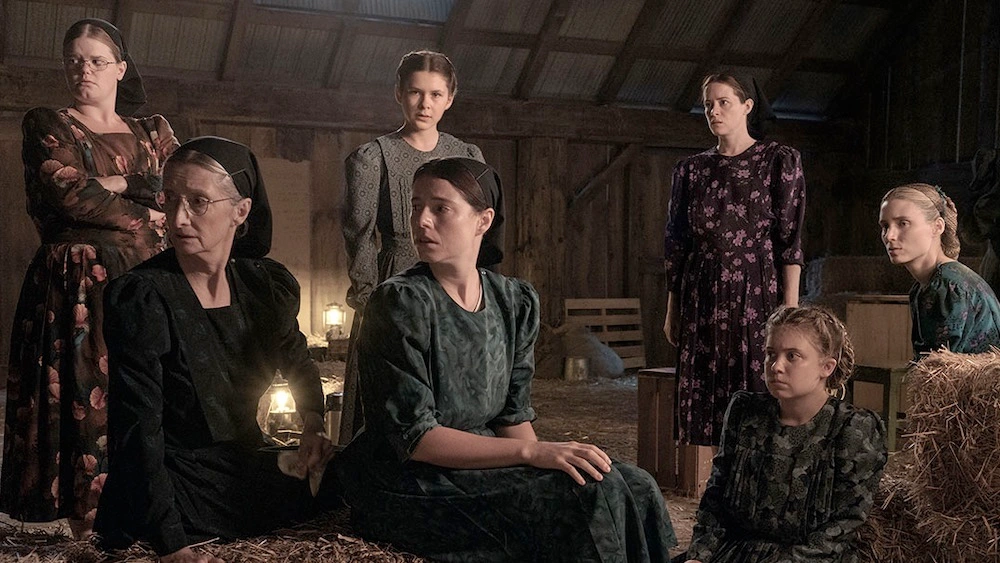
Shot by cinematographer Luc Montpellier in muted tones that almost make the film look like it was shot in black-and-white and then tinted to match the mood of each moment, writer/director Sarah Polley’s Women Talking (based on the book by Miriam Toews) centers on a religious community whose normally powerless women are tasked with finding a solution to a rampant problem within the colony. Several of the men have been committing sexual assaults in the night. Once the perpetrators were identified, the men left the community for a time, and the women had to decide whether they wanted to forgive the offending men and carry on with life as normal or whether they want to leave the colony and start a new one somewhere else, taking only the children with them.
Most of the film is set in a barn where a few of the women rise to the surface as natural leaders, although with a variety of opinions on their next steps. The embarrassment-of-riches cast includes Rooney Mara as Ona, who sees no choice but to leave or risk repeat offenses; Claire Foy as Salome, who seems torn by what steps to take next; and Jessie Buckley as Mariche, the tough contrarian who is abused by her husband, but still seems inclined to stay put. Rounding out the ensemble are Judith Ivey, Sheila McCarthy, Frances McDormand (who also produced the film), and Ben Whishaw, as local school teacher August Epp, who is tasked with writing down what is said in this meeting, since none of the women know how to write, but he also has strong feelings for the unwed but pregnant Ona.
Women Talking is deliberately vague (at first) about when in history it is set. Is it a period piece or is it alarmingly more modern than that? And the reveal on the exact year comes in waves of information, parceled out throughout the conversation. The film is an impressive collection of ideas and performances, all culminating in a reckoning and reconciling with faith that is fiercely debated and emotionally realized. The film shook me profoundly, and the discussion took turns and made arguments that I was not expecting. Every second of Women Talking is gripping and an essential part of a greater conversation about gender and power roles in any society.
Women Talking is now playing in select theaters, including at Music Box Theatre.
Did you enjoy this post? Please consider supporting Third Coast Review’s arts and culture coverage by making a donation. Choose the amount that works best for you, and know how much we appreciate your support!
